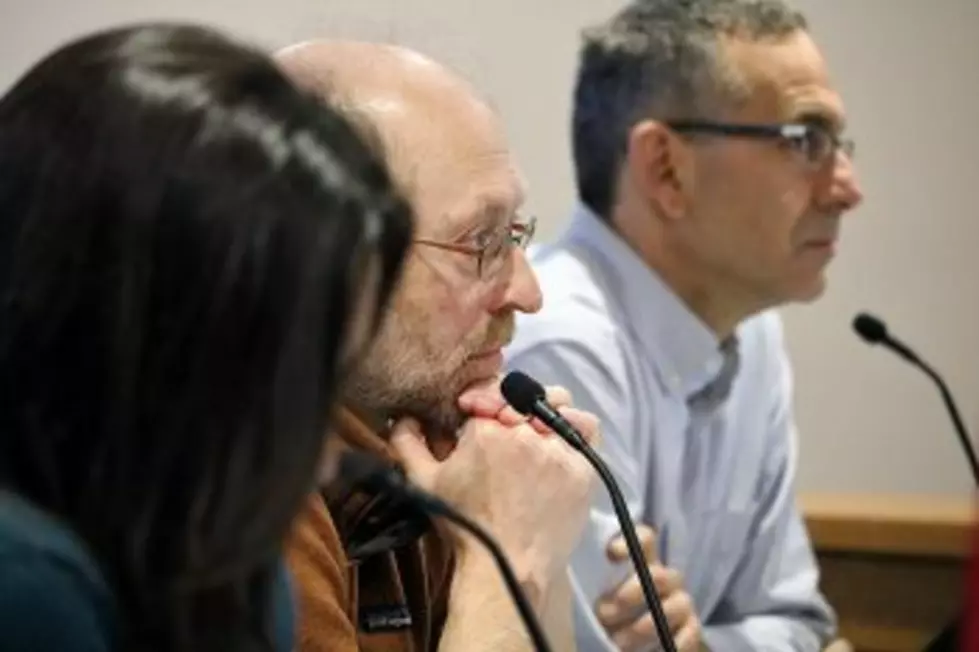
Missoula County prepares to adopt new building codes, fees
Missoula County commissioners on Thursday agreed to postpone for now a proposed increase in building fees, though it will move forward with adopting new building codes this spring.
Steven Hutchings, a county employee, said the state Building Codes Bureau reached out in early December saying it was going to adopt new codes, including plumbing, mechanical, electrical and building, among others.
While the codes are typically amended every three years, he said the bureau skipped the last cycle. The county is working to bridge the gap and modernize the codes as required.
“We've got two cycles that we're jumping through,” Hutchings said. “The inspectors have been through some training provided by the state to transition from the 2012 codes to the 2018 codes.”
Some in attendance Thursday opposed the new codes, saying they represented overreach and were unnecessary. Jean Curtiss was among the opponents who suggested the county wait until those with projects planned or in the works had time to adjust.
“There's no reason not to give folks time to finish up work they have in mind or that they've already bid on,” she said.
But under state law, the county must implement the codes withing 90 days of notice, meaning the codes will go into effect this March. Commissioner Dave Strohmaier said the county had no choice but to act.
“We have to, by virtue of the state of Montana, adopt these within 90 days,” said Strohmaier. “It's not optional for us whether we adopt the building codes or not.”
The county is also looking to increase the fees associated with the new codes. Doing so would generate an additional $100,000 in revenue, covering what county employees described as the cost of providing the service.
Nicole Whyte, the program manager with building and development, said it made sense to adjust the fees alongside the new codes. But she also cited other reasons, saying the county has been losing revenue due to recent annexations by the city of Missoula.
“We've been losing a significant amount of revenue, mostly with the (Airport) Development Park the last year, but we really don't see a decrease in our work load,” she said. “Cash reserves have been used to cover our deficit for the past two years. If that keeps occurring, we won't have a healthy reserve, and the construction economy is hard to predict.”
Whyte said the building division operates under the Department of Public Works, which has been subsidizing her department by covering personal and operational costs. But that practice will come to an end.
She said revenues in the building department are $35,000 less than they were at this time last year. Covering mandatory cost of living and union increases continue to outpace the department's ability to cover expenses.
“We don't take any general fund or taxpayer dollars. We are 100% funded by permit fees,” said Whyte. “We haven't had to raise our fees for almost a decade. If we raised fees every year from 2011 to now at a 2% increase, it would be equal to about what we're asking for now.”
She said the increases are on par with other Montana cities.
But a number of people opposed the fee increases, including Jeffery Halvorson. He said the permits will increase the cost of housing and he criticized the county for not placing the issue before voters.
“Building permits were not put in by a public vote of the people. It was put in by three county commissioners,” he said. “It was a tax on everybody who ever has a house. I think those taxes should be approved by a democracy, not by a dictatorship.”
This week, the city of Missoula also took the initial step of adjusting its impact fees. The fees are placed upon new home and commercial construction to help offset public infrastructure costs as new development takes place.
The county will continue to consider the new fees, though it agreed Thursday to delay the proposed increases until more public outreach takes place.
“As far as extending the public hearing on the fees, I would only want to extend it out as far is it would allow us to do a bit more public outreach,” said Strohmaier. “I would entertain a month or two. It might cut into what would otherwise be collected, but it would allow more outreach to the public.”
